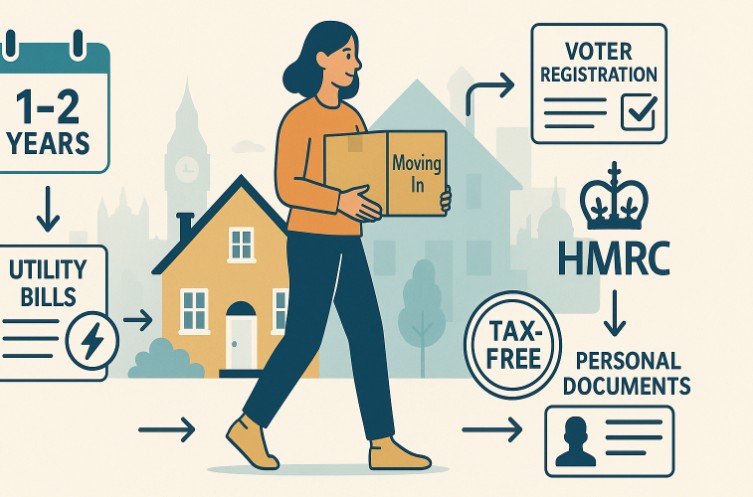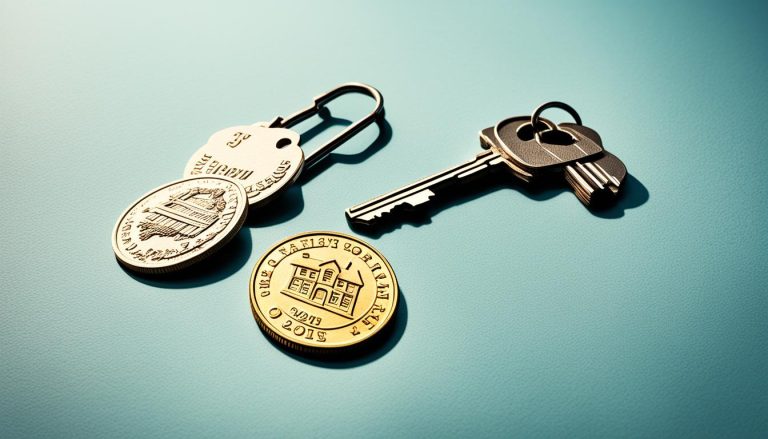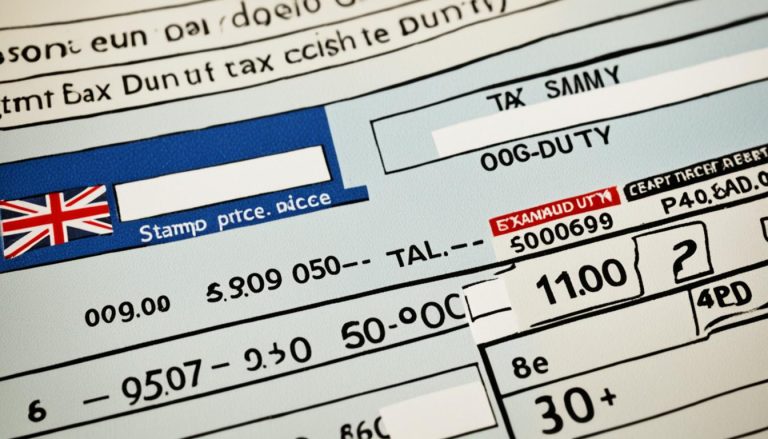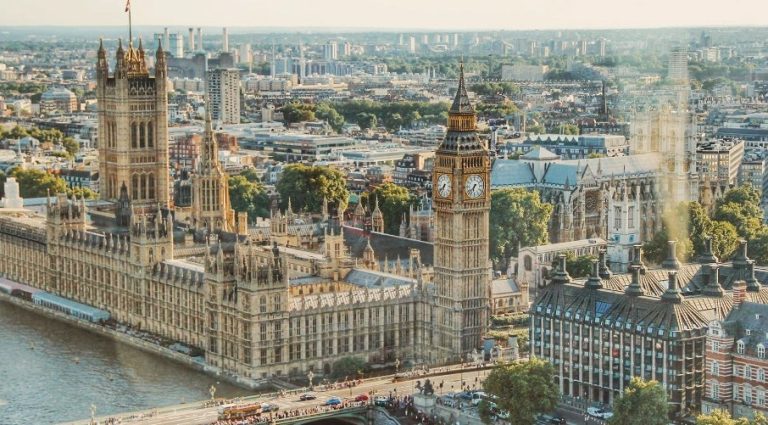Beginning January 2025, HMRC will introduce stricter enforcement measures by issuing a £100 fine to UK households that fail to meet the Self Assessment tax return deadline. This move forms part of a broader effort to encourage timely filing and improve compliance across the nation.
The new penalty structure will affect millions of taxpayers, particularly those who are self-employed or earn additional income outside the PAYE system. With the deadline drawing near, it’s vital to understand the implications, prepare adequately, and take action to avoid unnecessary penalties.
Why Is HMRC Imposing A £100 Fine Starting January 2025?

HMRC is tightening its approach to Self Assessment tax return compliance from January 2025, with a renewed focus on prompt submissions. The automatic £100 fine for late returns, even where no tax is du,e marks a firm move toward improving tax discipline among UK taxpayers.
This change stems from HMRC’s commitment to streamlining revenue collection and ensuring more consistent filing behaviours. Late submissions have historically contributed to delays in processing, tax refund backlogs, and gaps in compliance. With an increasing number of taxpayers moving into self-employment or earning through side incomes such as rentals and investments, the need for improved timeliness has grown.
By implementing an immediate penalty system, HMRC aims to:
- Reduce late filing cases year-on-year
- Encourage digital and early submissions
- Support better fiscal planning at a national level
The updated rule applies across the board, whether you’re a sole trader, landlord, high-income individual, or receiving untaxed income from other sources. It reinforces the responsibility every taxpayer has to meet deadlines and file accurate returns.
What Is The Deadline For The 2023/24 Self Assessment Tax Return?
The filing deadline for the 2023/24 Self Assessment tax return is 31 January 2025, precisely at midnight. This date also applies to the payment of any taxes owed for that financial year. The tax year runs from 6 April 2023 to 5 April 2024, and by law, returns must be filed for any qualifying income during this period.
Key deadline dates:
- 31 October 2024 – Deadline for paper-based tax return submissions
- 31 January 2025 – Deadline for online filing and final payment
Missing the January deadline results in an automatic £100 penalty, regardless of whether tax is owed or not. HMRC considers both submission and payment as part of compliance, meaning taxpayers must ensure funds clear by that date as well.
Many taxpayers leave submissions to the final days of January, increasing the risk of technical errors or access issues due to high server loads. Therefore, early filing is highly recommended.
What Happens If You Miss The Tax Return Deadline?
Missing the Self Assessment deadline has immediate and increasing consequences. HMRC enforces a tiered penalty structure to encourage timely compliance and discourage repeated offences.
Here’s how penalties are structured based on the length of delay:
| Delay Period | Penalty |
| 1 day to 3 months | £100 automatic fixed penalty |
| 3 to 6 months | £10 per day (up to 90 days) – maximum of £900 |
| 6 to 12 months | £300 or 5% of the tax due, whichever is higher |
| Over 12 months | Additional £300 or 5% of unpaid tax (or more severe) |
In addition to these penalties:
- Interest charges accrue daily on unpaid tax
- Late payment penalties of 5% are applied at 30 days, 6 months, and 12 months after the due date
If a return is over a year late and HMRC believes it was deliberately withheld, penalties may escalate to 100% of the tax due. These measures underline the seriousness with which late returns are treated.
Who Must File A Self Assessment Tax Return In The UK?

Filing a Self Assessment tax return is a legal obligation for individuals who receive income that is not taxed automatically through the PAYE (Pay As You Earn) system. While many employees do not need to worry about this process, others, particularly the self-employed and those with multiple income sources, must file annually.
The following sub-sections provide a comprehensive breakdown of the situations and income types that require filing a Self Assessment tax return for the 2023/24 tax year.
Self-Employed Individuals and Sole Traders
Anyone who earned more than £1,000 in self-employment income between 6 April 2023 and 5 April 2024 must file a Self Assessment return.
This applies even if:
- The business is part-time or run alongside a main job
- The income is irregular or seasonal
- The business made a loss
Why it matters: HMRC needs to assess taxable profit after allowable expenses are deducted. The £1,000 threshold refers to gross income before any deductions.
Members of a Partnership
Individuals involved in business partnerships must complete a Self Assessment return, and one partner must also submit a separate Partnership Tax Return on behalf of the business.
This includes:
- General partnerships
- Limited partnerships
- LLPs (Limited Liability Partnerships)
Important note: Each partner is individually responsible for reporting their share of the profits (or losses) on their own return.
High Earners
If your total taxable income exceeds £150,000 in the 2023/24 tax year, you’re required to file a return even if your income is fully taxed at source under PAYE.
This category also includes:
- Company directors receiving dividends
- Individuals with multiple employment sources
- People with complex income structures (e.g., bonuses, shares, pensions)
Key point: Even if tax was paid automatically, the return ensures all income sources are accurately reported.
Individuals With Income From Property or Rentals
If you earn income from letting out property in the UK or overseas and it exceeds £1,000, you must report it to HMRC through Self Assessment.
This includes:
- Residential landlords
- Commercial property owners
- Holiday let operators
- Rent-a-room scheme users (if income exceeds £7,500 threshold)
Why it’s required: Rental income is not typically taxed at source, so HMRC needs full visibility to assess the correct liability.
Those With Capital Gains
If you sold or disposed of an asset such as property, shares, or valuable possessions and made a profit that exceeds the Capital Gains Tax (CGT) allowance, you must file a return.
For 2023/24, the CGT allowance is:
- £6,000 for individuals
- £3,000 for trusts
Assets that may trigger CGT include:
- Second homes
- Investment portfolios
- Business shares
- High-value personal items (e.g., art, jewellery)
Note: Reporting is required even if you are within the annual allowance, in some cases, to verify the gain and reliefs.
Individuals Affected By The High Income Child Benefit Charge
If you or your partner received Child Benefit and your income exceeded £50,000, you are liable for the High Income Child Benefit Charge (HICBC).
This applies regardless of:
- Which partner receives the benefit
- Whether both or only one has income above the threshold
- Whether tax has already been paid via PAYE
Calculation tip: The charge increases gradually, reaching 100% if income exceeds £60,000. Even if the benefit was opted out, a return may be required if it was claimed during the tax year.
People With Untaxed Income
You must file a Self Assessment return if you received untaxed income that isn’t covered by allowances or has not been reported to HMRC in another way.
Common examples:
- Freelance or consulting work outside your main job
- Investment income above the £1,000 savings allowance
- Dividends above the £1,000 dividend allowance
- Commission or tips
- Cryptocurrency gains (if taxable)
Why it matters: HMRC does not automatically track these income streams, so manual declaration via Self Assessment is essential.
Individuals With Foreign Income
If you live in the UK and receive income from abroad, a return is necessary to report this under UK tax rules.
This includes:
- Earnings from overseas employment
- Foreign pensions or social security
- Income from overseas property
- Interest from foreign bank accounts
Important considerations: UK residents are generally taxed on worldwide income. You may be eligible for relief under double taxation agreements, but this must be declared.
Individuals Claiming Certain Tax Reliefs

Some individuals must file a tax return to claim specific reliefs or allowances not processed through PAYE.
These may include:
- Relief on private pension contributions exceeding the basic rate
- Enterprise Investment Scheme (EIS) relief
- Gift Aid if donating large sums
- Loss relief for sole traders or partnerships
Note: Filing a return allows you to reduce your overall tax liability through these deductions.
Individuals Asked By HMRC To File
Sometimes, even if none of the above conditions apply, HMRC may issue a notice to file a return. Once this notice is received, the taxpayer is legally obliged to comply, regardless of income level or complexity.
This often happens when:
- HMRC suspects undeclared income
- Your financial history changes
- There are discrepancies in PAYE data
Advice: Never ignore a notice from HMRC. If you believe it was issued in error, contact them to clarify or appeal, but do not assume non-action is safe.
Can You Appeal Against A Late Filing Penalty?
Yes, HMRC permits appeals against penalties if you have what is deemed a “reasonable excuse.” This clause is designed to offer relief in cases where late submission was genuinely beyond the taxpayer’s control.
HMRC accepts the following reasons as valid:
- A serious illness or hospitalisation around the deadline period
- A close family bereavement shortly before the due date
- Fire, flood, or other natural disasters
- Technical issues with HMRC’s website or your own systems
- Unexpected postal delays if filing by paper before the October deadline
On the other hand, HMRC typically rejects excuses such as:
- Forgetting the deadline
- Not receiving a reminder
- Being abroad without internet
- Software or login issues not reported in time
To appeal, taxpayers must provide evidence supporting the excuse, such as hospital admission records, photographs of flood damage, or screenshots of HMRC platform errors.
Appeals should be made as soon as possible, ideally within 30 days of receiving the penalty notice.
How Can You Avoid HMRC Penalties For Late Tax Returns?
Avoiding penalties is entirely within reach for most taxpayers by following a few proactive steps. Timeliness and organisation are the key factors.
Key strategies to avoid HMRC fines:
- File Early: Don’t wait until January. Filing in November or December provides room for error correction and reduces pressure.
- Keep Records: Maintain well-organised records of income, expenses, and deductions throughout the year. Digital bookkeeping tools can help.
- Use Digital Filing: Online submission is quicker and provides immediate confirmation. HMRC’s website is available 24/7 for this purpose.
- Set Reminders: Calendar alerts or digital apps can keep you on track.
- Double-Check Submissions: Ensure all details (e.g., Unique Taxpayer Reference, National Insurance number, income amounts) are accurate.
- Work With Accountants: Professionals like UK Property Accountants offer expert guidance, handle paperwork, and submit returns on your behalf.
Being organised throughout the tax year means filing doesn’t have to be a stressful last-minute scramble.
Is Digital Filing The Best Option In 2025?
Digital filing continues to be the most efficient and preferred method for submitting Self Assessment tax returns. With HMRC’s push towards a more digitised tax system, including the upcoming Making Tax Digital for Income Tax initiative, online filing is not only faster but also future-proof.
Advantages of online filing include:
- Immediate Submission: Returns are received by HMRC instantly.
- Instant Confirmation: You receive an acknowledgment as soon as the return is submitted.
- Faster Refunds: If a refund is due, it is often processed more quickly than with paper submissions.
- Built-in Calculations: Reduces errors and helps estimate liability before filing.
That said, digital filing does have challenges. Technical problems with the HMRC portal, forgotten passwords, or high traffic volumes during January can cause last-minute stress. It is best to avoid peak usage periods and ensure login credentials are saved securely.
What Role Do Accountants Play In Avoiding Fines?

Professional accountants and tax advisors are valuable allies in staying compliant with HMRC regulations, especially if your financial situation is complex.
Roles accountants play in the Self Assessment process:
- Determine Filing Requirements: They assess whether a tax return is needed and which forms apply.
- Maximise Allowable Deductions: Through a professional review, they ensure all eligible expenses are claimed correctly.
- Ensure Timely Filing: Many firms take responsibility for deadlines, reducing the burden on clients.
- Avoid Mistakes: Accuracy is key in preventing audits and penalties.
- Appeal Support: Should you receive a penalty, accountants can manage the appeals process and correspond with HMRC on your behalf.
Specialist firms like UK Property Accountants provide bespoke tax services for landlords, high-income earners, business owners, and non-resident investors. Their understanding of UK tax law ensures that clients not only avoid fines but also remain financially efficient year-round.
FAQs
What if I file my tax return one day late?
Even a single day’s delay will trigger the automatic £100 fine. HMRC does not offer a grace period beyond the set deadline.
Does HMRC notify me before issuing a fine?
Usually, HMRC sends a notice of penalty after the deadline has passed. However, the responsibility lies with the taxpayer to file on time without reminders.
Can I pay my Self Assessment tax in instalments?
Yes, in some cases, you can set up a payment plan with HMRC using the Time to Pay service. Eligibility depends on your tax owed and financial circumstances.
What if I didn’t know I needed to file a return?
Lack of awareness is not considered a valid excuse. You are responsible for understanding your obligations based on your income and activities.
Is the £100 fine applicable to all income levels?
Yes, the £100 penalty applies regardless of how much tax is due or your income level. Even if no tax is owed, a missed deadline incurs a fine.
How do I check if my return was successfully submitted?
After submitting online, you will receive an HMRC confirmation. Keep this receipt as proof of submission in case of technical disputes.
Are there any changes in Self Assessment rules from previous years?
The most significant change is the automatic enforcement and standardisation of the £100 fine. Additionally, more emphasis is placed on digital filing and real-time record-keeping.






